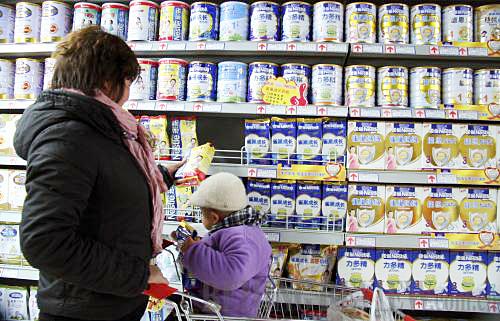|
 |
|
SAFETY MOVES: Domestic dairy products now seem risky to Chinese consumers, and the Central Government is setting up a corporate credit management system to ensure dairy safety (XINHUA) |
Disputable Fee Charges
An airport construction fee (or airport tax) and tourism development fund would continue to be collected from January 1 this year to December 31, 2015, says a document from China's Ministry of Finance released on January 6.
The airport construction fee began to be collected in 1992. Its validity has been questioned ever since. Although the Ministry of Finance issued a document in 2002 saying the fee would stop in 2005, the collection continues. This time, without being informed of anything, the public is told this fee will be continued for another five years. A legal hearing is needed to decide whether the fee should be continued.Besides, most of the airports in China are constructed from the state budget, which comes from taxation. If airports impose this extra fee on passengers, it's equal to repeated taxation. Passengers don't need to pay railway or bus station construction fees when they take trains and use the subway or buses, so why should they pay airport construction fees? The public is entitled to a hearing on the fee's collection.
Yanzhao Evening News
Nothing to Do With Patriotism
Officials from the Ministry of Agriculture recently said, in the first 11 months of 2010, imported milk powder hit an historical high at 370,600 tons and in 2011, foreign brands will account for 50 percent of milk powder sold in the Chinese market. Because of this trend, China's milk powder prices will be affected by international prices.
This disclosure implies we have no choice but to wait for our domestic market to be conquered by foreign brands and let them make excessively huge profits in China. If you don't want this to happen, please buy domestic dairy products.
It's one's freedom to choose what to feed their children and basically people will do what's in their best interests. The almost complete failure of China's domestic milk powder products is a consequence of market choice based on consumers' rational preferences.
There was a turning point leading to the sharp downfall of domestic dairy products, the melamine accident in 2008. Before that, Chinese milk powder made up 60 percent of the domestic market. Melamine milk pushed Chinese consumers to imported milk powder. Anyway, comparatively, imported milk is safer, and at least no melamine or things like sex hormones are being discovered now.
Why do the Chinese prefer foreign milk powder? Is it because they don't love their country and don't want to support their national brands? No, it is their disappointment at domestic products such as melamine-contaminated milk powder that pushed the consumers toward imported milk powder.
Guangzhou Daily
Health or Profits?
A lead poisoning incident in Huaining County, Anhui Province, at the beginning of the year attracted vast attention.
In 2009, there were six similar incidents and in 2010 the number rose to nine. The question is, why do such things happen again and again?
Today, there are many lead-involved factories in some underdeveloped regions in the country. In some places, the local government often neglects the pollution brought about by these plants, out of the consideration of the economic interests.
The air and water quality around lead-involved enterprises should be strictly monitored. But in some places, the focus is more put on production, or economic profits.
Most of the lead-involved enterprises are now dotted in economically backward areas, where laws are not strictly implemented, and where county-level environment watchdogs are incapable of monitoring lead and lead compounds. Therefore, while improving the local environment watchdogs' technological level, it's also important for local government to speed up the economic structure transformation and develop environment-friendly economy.
People's Daily
Trees or Concrete?
The Urban Planning Bureau of Hangzhou, Zhejiang Province, recently held a hearing to consult residents on whether to replace a public green area with a highrise building. The move is applaudable.
The establishment of a hearing system shows the government's willingness to respect the public's opinions and safeguard their interests. Hearing procedures and regulations have been set up to ensure smooth operation. But, a regular hearing system is still absent from many places.
Against this background, this hearing in Hangzhou is praiseworthy in many aspects. Thirty representatives of residents who were opposed to the plan were invited to express their reasons.
This tells a hearing is a real opportunity for the public to voice about their concerns. With a stronger sense of the law and rights, a greater number of different voices are expected from the public.
Whether the hearing system can operate smoothly is a test of the government's tolerance and openness. More heated debates and a wider range of representation are expected at future hearings.
Workers' Daily | 